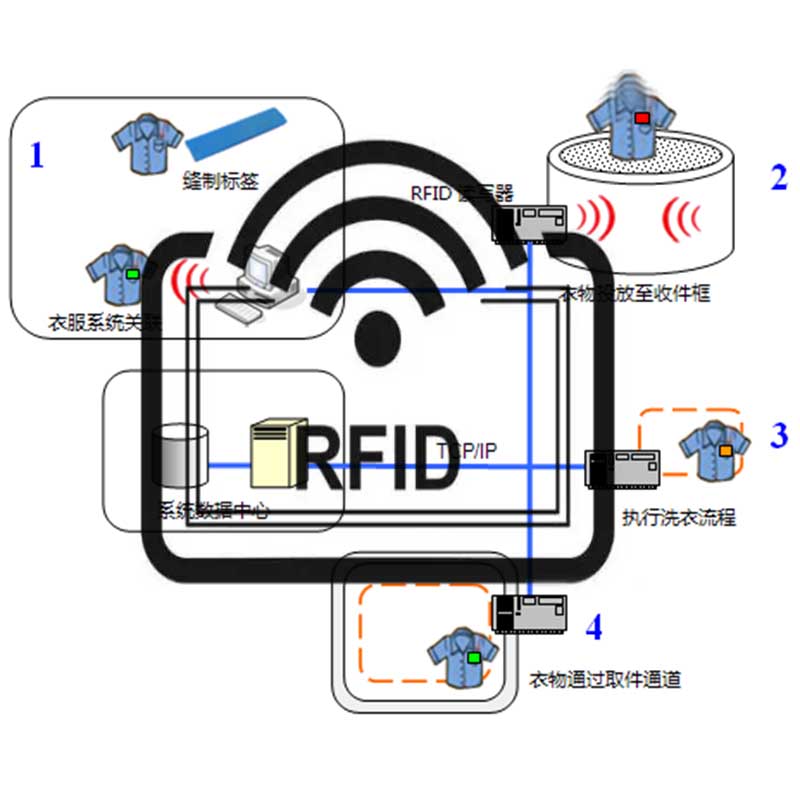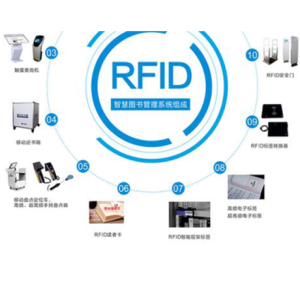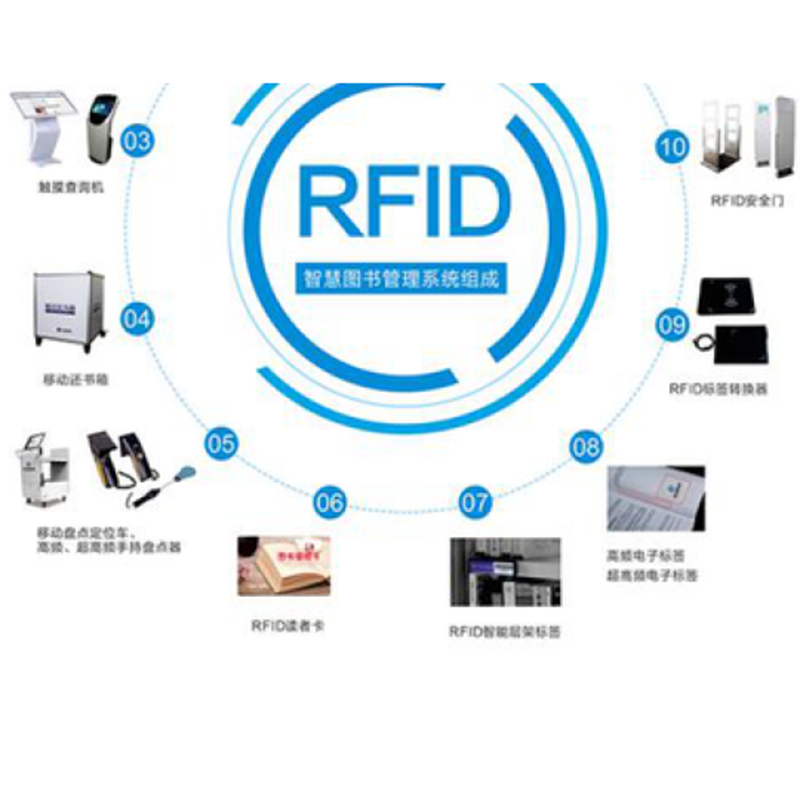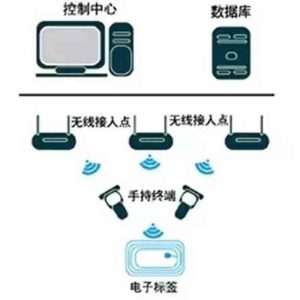What does RFID mean?
(Radio Frequency Identification)It is a wireless communication technology used to identify specific targets and obtain relevant data through radio signals. RFID technology achieves automatic recognition and tracking of objects by implanting microchips or attaching tags to them. This technology has been widely applied in logistics, retail, healthcare, finance and other fields, greatly improving production efficiency and management level.

RFID technology mainly consists of RFID tags, readers and writers, and data processing systems.
RFID tags are electronic tags equipped with chips and antennas, used to transmit information under the influence of radio waves. A reader is a device used to send and receive radio signals, which can read the information stored on the label and transmit it to a data processing system for processing. The data processing system is responsible for managing and analyzing the data obtained from RFID tags, achieving tracking and management of objects.
RFID technology has many advantages.
Firstly, RFID tags can achieve tracking and management of objects, improving the efficiency of logistics and inventory management. Secondly, RFID technology can achieve automatic recognition of objects, reducing the complexity and error rate of manual operations. In addition, RFID technology can also achieve remote monitoring of objects, providing enterprises with more accurate and real-time data support.
RFID technology also has some problems and challenges.
1. The high cost of RFID tags limits their application in some low value products.
2. The security and privacy protection issues of RFID technology are of great concern, and it is necessary to strengthen the formulation and implementation of relevant laws and regulations.
3. The standardization and interoperability issues of RFID technology also need to be further improved to promote its widespread application in different industries.
RFID electronic tags, as an advanced wireless communication technology, have broad application prospects and development space. With the continuous progress and maturity of technology, RFID technology will play an important role in more fields, bringing more convenience and benefits to social and economic development.






